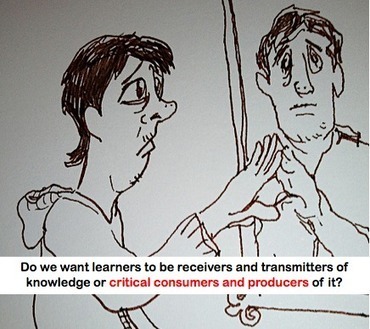Thinking about Thinking Optimizes Learning
Most teachers know that if students reflect on how they learn, they become better learners. For example, some students may think and process information best in a quiet library; others may focus better surrounded by familiar noise or music. Learning strategies that work for math may be different from those applied in the study of a foreign language. For some, it takes more time to understand biology than chemistry. With greater awareness of how they acquire knowledge, students learn to regulate their behavior to optimize learning. They begin to see how their strengths and weaknesses affect how they perform. The ability to think about one’s thinking is what neuroscientists call metacognition. As students’ metacognitive abilities increase, research suggests they also achieve at higher levels.
Metacognition plays an important role in all learning and life experiences. Beyond academic learning, when students gain awareness of their own mental states, they begin to answer important questions: How do I live a happy life? How do I become a respected human being? How do I feel good about myself? Through these reflections, they also begin to understand other people’s perspectives.
Learn more / En savoir plus / Mehr erfahren:
http://www.scoop.it/t/21st-century-learning-and-teaching/?&tag=reflection
http://www.scoop.it/t/21st-century-learning-and-teaching/?&tag=Psychology
http://www.scoop.it/t/21st-century-learning-and-teaching/?&tag=Metacognition
Via Gust MEES



 Your new post is loading...
Your new post is loading...











Learn more / En savoir plus / Mehr erfahren:
http://www.scoop.it/t/21st-century-learning-and-teaching/?&tag=reflection
http://www.scoop.it/t/21st-century-learning-and-teaching/?&tag=Psychology
http://www.scoop.it/t/21st-century-learning-and-teaching/?&tag=Metacognition